Solar Powering Proving Ground
Latest News
The following article is an extract from Automotive Testing Technology International Magazine. To read the full edition click here.
The Australian Automotive Research Centre (AARC) have recently invested in renewable energy technologies to support its customers’ testing and development work on site.
AARC’s secure location means that it is isolated from the main electricity grid and as a result has relied on generator power during business hours. This motivated the recent installation of a solar collection system to power offices and workshops and support in field testing.
Excess energy is stored in lithium ion batteries to provide 24-hour power for the first time in the site’s history. This has dramatically improved AARC’s communication and security systems and has been positively received by its customers. Justin McMinn, Proving Ground Manager at Bosch Australia, runs the company’s operations on site and sees many benefits to this solution.
"The installation of the solar collection system at AARC is a fantastic initiative that aligns with Bosch's commitment to being carbon neutral by 2020. We are on track to achieve this - 30 years ahead of the targets set by the UN,” McMinn said. “The system at AARC will also provide direct benefits to our business, making data transfers more reliable and efficient, as well as providing clean energy to power our testing activities."
This development will also meet the demand from customers for after-hours work which is expected to rapidly increase as the testing of autonomous vehicles and Advanced Driver Assistance Systems grows.
With greater emphasis now placed on data collection and analysis rather than traditional mechanical based research, AARC believe that its improved connectivity due to solar power will support this change. It will ensure that test data can be shared efficiently from tenants and casual users from their on-site workshops to their offices in Victoria and abroad.
It is estimated that the proving ground’s solar collection system will reduce generator use from 340 days per year to 30, dramatically improving AARC’s carbon footprint. This is the first of a long pipeline of improvements that AARC have in the works, with plans to build a world-class living laboratory for autonomous vehicles underway.

